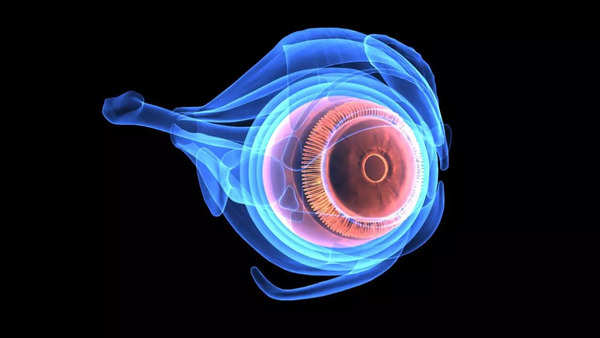Good cholesterol or high-density lipoprotein (HDL) has earned a flawless reputation over the years, with doctors recommending it for boosting heart health, and several research studies demonstrating its benefits in reducing inflammation, protecting cells and tissues from oxidation, and providing protection against stroke. Turns out every good has a bad side to it, and the same is also true for the ‘good cholesterol.
A new study published in British Journal of Ophthalmology has found a surprising link of HDL cholesterol with blindness, challenging the existing notion that having this type of cholesterol has little or no downsides.
Is good cholesterol a villain for your eye?
A groundbreaking new study suggests that higher levels of HDL cholesterol may actually increase the risk of glaucoma, a leading cause of blindness worldwide. Even more surprisingly, the study found that traditionally “bad” forms of cholesterol, including low-density lipoprotein (LDL), might offer some protection against the disease.
What the study discovered
For the study, Scientists from the Zhongshan Ophthalmic Center at Sun Yat-sen University in China, followed more than 400,000 UK adults for over 14 years. They found that having higher levels of high-density lipoprotein (HDL) cholesterol are linked to a greater chance of developing glaucoma, an eye condition that can cause irreversible blindness. The findings of the study challenge the current understanding of the role of different types of cholesterol in our bodies.
What is Glaucoma?

Glaucoma is a chronic eye disease that damages the optic nerve, which can lead to vision loss or blindness.
It affects millions around the world and it’s estimated that by 2040, around 112 million people will have this eye condition. High pressure inside the eye is the main risk factor for glaucoma, however, scientists wanted to understand if the disease risk gets affected by how our body processes fats.
Findings of the study
It was found that for each standard increase in HDL cholesterol levels, a person’s risk of developing glaucoma increased by 5% and this connection was stronger in men over age 55. The study also surprisingly found that higher levels of low-density lipoprotein (LDL) cholesterol, total cholesterol, and triglycerides, which are considered unhealthy forms of cholesterol, in fact were associated with a lower risk of developing glaucoma. However, genetic analysis couldn’t confirm a direct protective effect of these lipids, suggesting the associations may be influenced by other factors.
HDL has earned the moniker of good cholesterol as it helps in removing other unhealthy forms of cholesterol from our blood, while bad cholesterol has been labelled so as it can build up in artery walls posing a grave risk to our heart. However, this new study hints these labels might be oversimplified when it comes to eye health.
Researchers also looked at genetics and found that people with a natural tendency for higher HDL levels had a greater risk of glaucoma. This strengthens the idea that HDL plays a role in the disease.
Age was another key factor, these cholesterol-glaucoma links only appeared in people over 55, suggesting aging changes how cholesterol affects eye health. The study also found differences between men and women. In older adults, high HDL levels raised glaucoma risk in men, while lower LDL and total cholesterol levels seemed to protect women.
Different types of glaucoma also showed different relationships with blood fats. Lower triglyceride levels were linked specifically to primary open-angle glaucoma, the most common form of the disease. Meanwhile, HDL showed connections to both main types of glaucoma.
(Picture courtesy: iStock)

